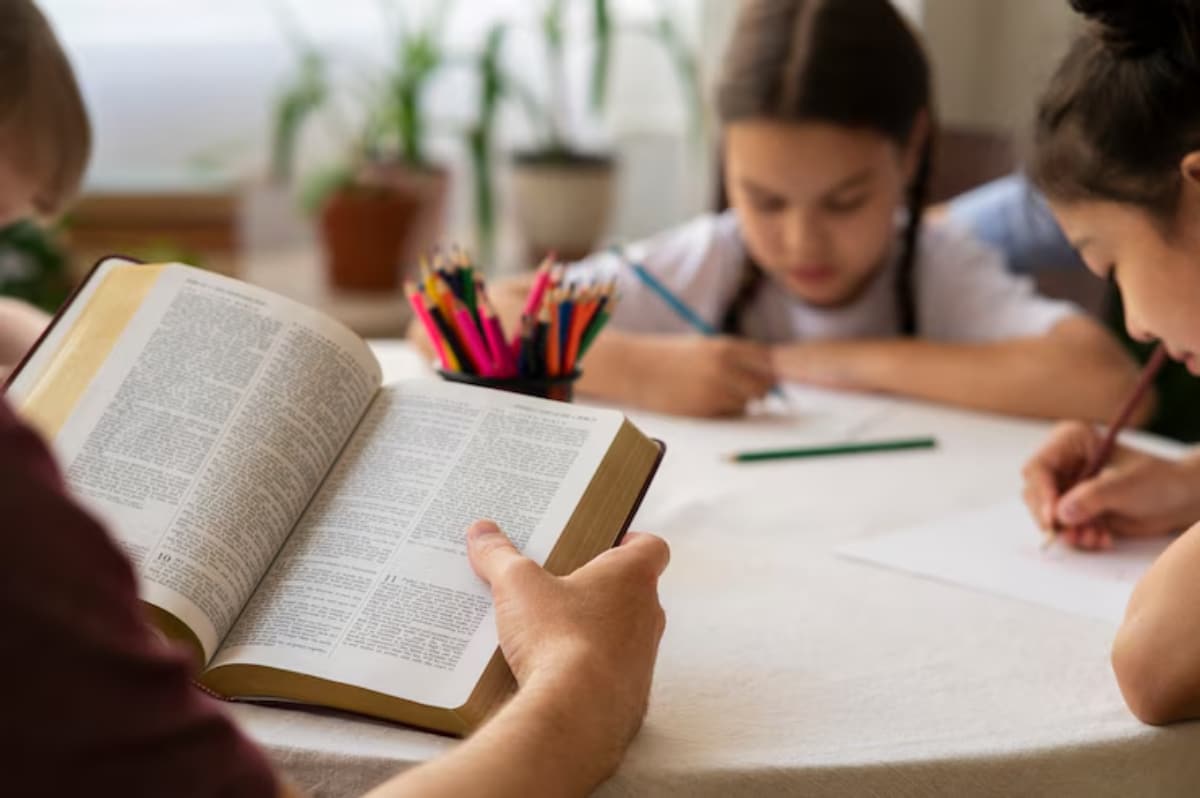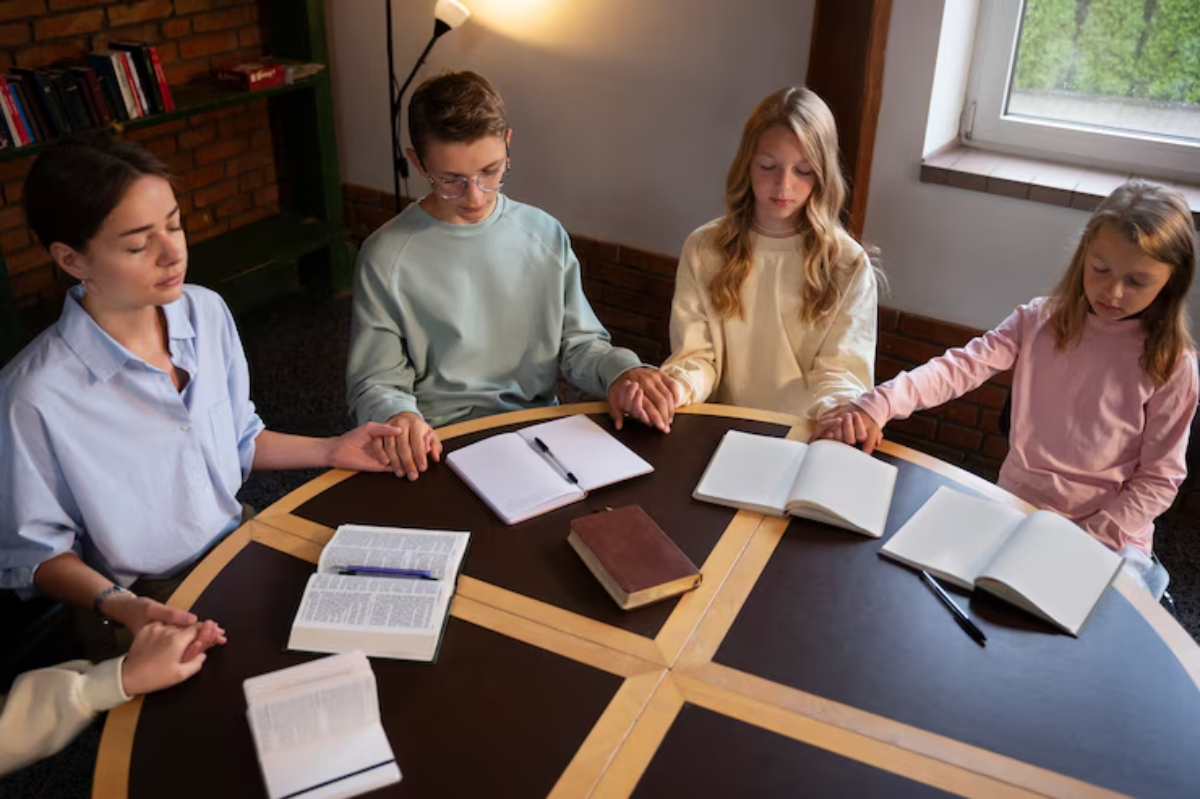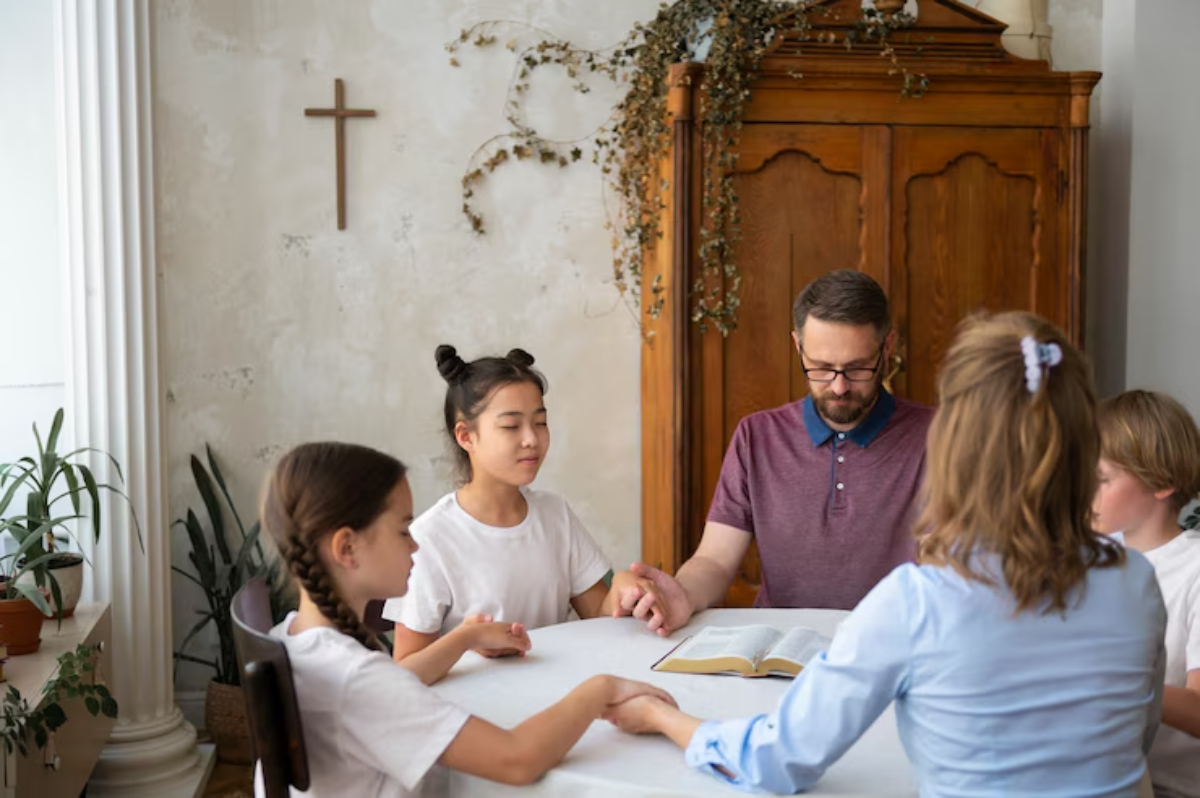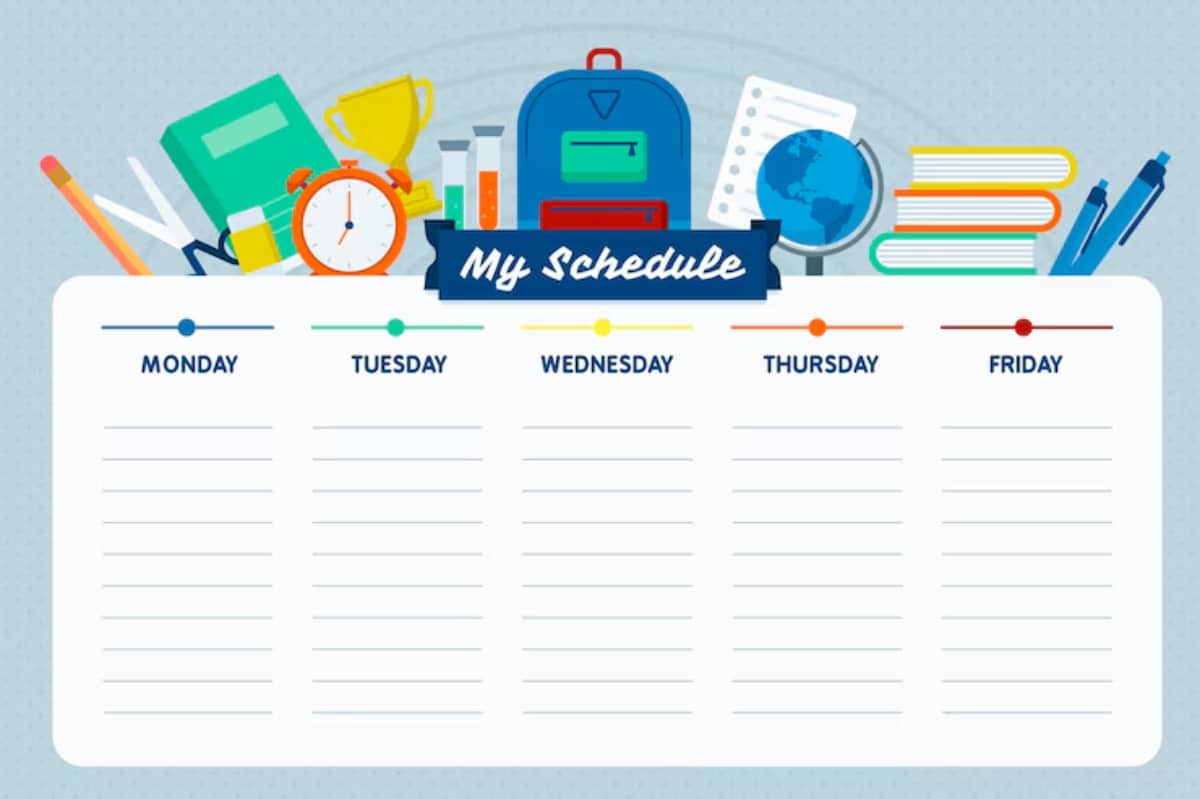
How to Choose a Faith-Based Curriculum for Homeschooling
Choosing to homeschool your children is a big step. But choosing a faith-based homeschool curriculum—one that nurtures both their minds and their hearts—adds another layer of importance. You want a programme that matches your family’s values, teaches strong academics, and incorporates your faith into everyday learning.
With so many religious homeschool programs available, it can be hard to know where to start. In this guide, we’ll walk you through choosing a curriculum that supports your faith, fits your teaching style, and helps your children grow spiritually and academically.

Why Choose a Faith-Based Curriculum?
For many families, homeschooling is about more than academics. It’s about raising children with a solid moral foundation and a deep connection to their faith. Here are some reasons why parents often choose faith-based homeschool choices:
- Biblical Worldview: Faith-based curricula often present subjects like history, science, and literature from a religious perspective.
- Moral Teaching: Character development, virtues, and ethical values are built into the lessons.
- Family Alignment: You can choose materials that align directly with your family’s beliefs and traditions.
- Daily Bible Study: Many religious homeschool programs include homeschool Bible study materials, encouraging daily spiritual growth.
Read our blog to know more: Best Christian Homeschool Curricula

Step-by-Step Guide to Choosing the Right Curriculum
1. Start with Your Faith Tradition
Not all religious homeschool programmes are the same. Some are Catholic, others Protestant, and some are broadly Christian. A few are based on other faiths altogether. Make sure the curriculum reflects your specific beliefs. Ask:
- Does it follow the teachings of your church or denomination?
- Are the Bible lessons and religious content aligned with your values?
- Do you need materials that support sacramental preparation, liturgical seasons, or scripture memorisation?
2. Understand Your Child’s Learning Style
Each child learns differently. Some prefer hands-on activities, others enjoy reading, while some thrive in visual or audio-rich environments. Look for a curriculum that matches your child’s way of learning.
- Visual learners: Look for colourful textbooks and diagrams.
- Auditory learners: Choose programmes with audio lessons or scripture readings.
- Kinesthetic learners: Find options that include crafts, experiments, or real-life projects.
This helps make the lessons more engaging and effective.
3. Decide on the Level of Structure You Want
Some families prefer open-and-go programmes with everything planned out. Others like more flexibility in adjusting or combining subjects.
Highly structured options (like Seton or Kolbe Academy):
- Come with lesson plans, grading, and support
- Ideal if you want a traditional school-at-home experience
Flexible options (like My Father’s World or Heart of Dakota):
- Allow you to adjust the pace and combine subjects across age levels
- Great if you have multiple children or a busy schedule
4. Check What Subjects Are Included
While most faith-based curricula include Bible study, not all offer every core subject. Make sure your chosen programme includes or integrates:
- Maths
- Reading and Writing
- Science
- History and Geography
- Bible Study / Theology
Some programmes may require you to add on specific courses, such as high school science labs or foreign languages.
5. Look for Support and Community
Homeschooling can sometimes feel lonely. That’s why support matters. Before choosing a curriculum, ask:
- Does the programme offer parent forums or support groups?
- Are there co-ops or local groups using the same curriculum?
- Is there access to teacher support, grading, or transcripts if needed?
Having a support network can make your journey smoother and more rewarding.
6. Review Sample Lessons or Previews
Most publishers provide sample lessons online. Read through them to understand the tone, complexity, and style. Look for:
- Clear, age-appropriate language
- Balanced integration of scripture and subject matter
- Approaches to sensitive topics (especially in science or history)
If possible, try out a week’s worth of material before committing.
7. Set a Realistic Budget
Costs for religious homeschool programmes vary widely. Some full-year packages cost hundreds of pounds, while others, like free online Bible study, are minimal or donation-based. Consider:
- What materials are included (books, DVDS, online access, etc.)?
- Are there hidden costs (shipping, lab materials, exam fees)?
- Will you be using the same materials again for younger siblings?
You don’t need the most expensive curriculum to give your child a meaningful faith-based education.

Recommended Religious Homeschool Programs
To get you started, here are a few respected options across different teaching styles and faith traditions:
| Curriculum | Style | Faith Tradition | Format |
| Abeka | Traditional | Protestant | Print & Online |
| My Father’s World | Charlotte Mason | Evangelical | Blended |
| Sonlight | Literature-based | Christian | |
| Heart of Dakota | Unit study | Protestant | |
| Seton Home Study | Structured | Catholic | |
| Kolbe Academy | Classical | Catholic | Print & Online |
| Easy Peasy All-in-One | Online/Free | Christian | Online |
| LIFEPAC (Alpha Omega) | Workbook-based | Christian |
Each can be tailored to include homeschool Bible study, worship songs, prayers, and more.
For more information, read our blog: Catholic Homeschool Curriculum Picks
Real Family Example
The Martins, a family of four from Devon, decided to homeschool when their local school couldn’t meet their faith needs. They started with My Father’s World. “We loved how Bible stories were woven into every subject. It felt like the curriculum was helping us academically and spiritually grow.”
Later, they switched to Kolbe Academy for more structure as their eldest entered secondary level. “It gave us the Catholic depth we were looking for, with strong academics,” says Mrs. Martin.
Common Questions
Q: Can I build my faith-based curriculum?
A: Yes. Many families use a mix of faith-based and secular materials. You can build your own by choosing resources supporting your child’s learning and your family’s faith.
Q: What’s the best programme for beginners?
A: Look for open-and-go curricula like Sonlight or CHC. They’re easy to follow and designed for new homeschooling parents.
Q: Do faith-based programmes meet national education standards?
A: Most do, especially accredited ones. Always check how well they align with your country’s requirements, especially for older students.
Related Reading
- Best Christian Homeschool Curricula
- Catholic Homeschool Curriculum Picks
Final Thoughts: Choosing with Confidence
The right faith homeschool curriculum can bring your family closer together while offering a high-quality education. Whether you want a full programme or a simple homeschool Bible study plan, the most important thing is that it reflects your values and supports your children’s growth.
Take your time, pray about it, and explore options. You don’t have to get it perfect from day one—homeschooling is a journey, and each year brings new insight.
Let’s Connect!
Do you have a favourite faith-based curriculum?
Subscribe to get helpful homeschool tips and resources straight to your inbox.
May your homeschool journey be filled with peace, purpose, and grace.


